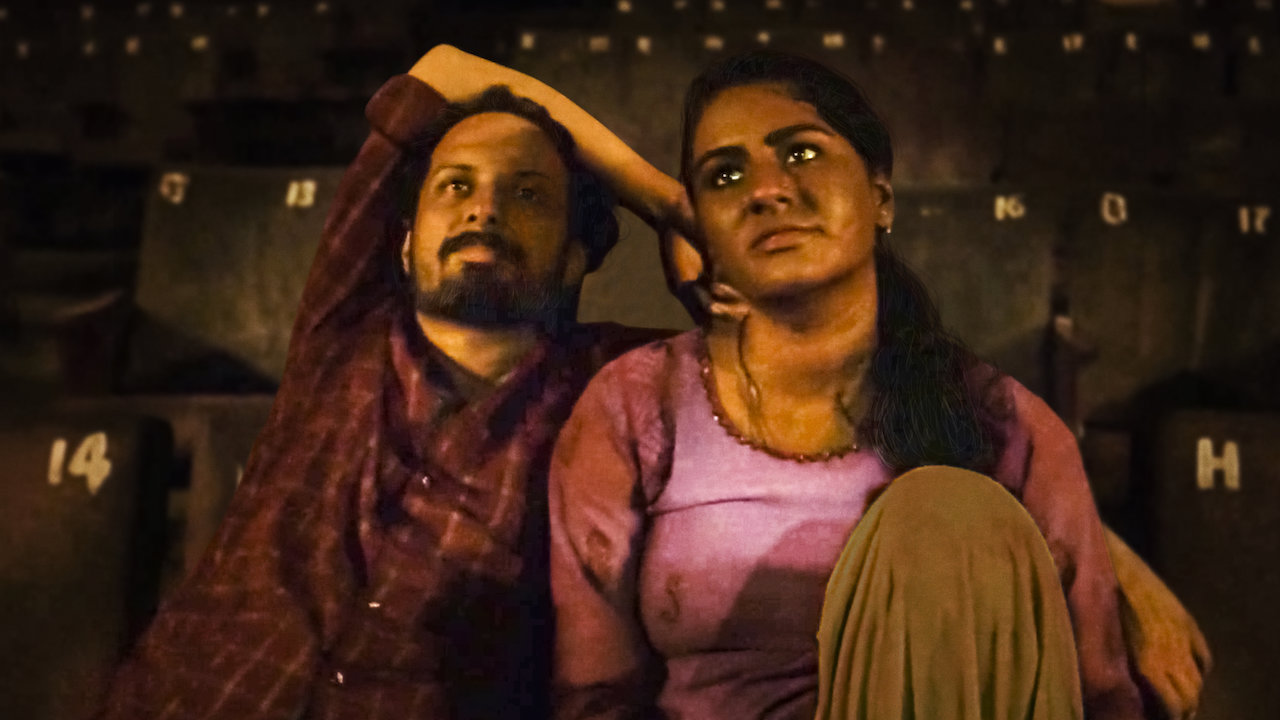By Rahul Desai
A 30-year-old woman rushes to see her boyfriend. They meet at Marine Drive promenade. They make out in a taxi. They eat lunch at an Irani cafe. They watch a movie. They sit on the beach. They retreat to a seedy lodge. He drops her back to her hostel. And she dances, alone, to her favourite song.
Aadish Keluskar’s Jaoon Kahan Bata Ae Dil is designed to invoke the quintessential one-day romance. About long walks and longer conversations. About lovers torn between space and time. About Mumbai being the hero and villain of middle-class companionship. About indie souls loving with mainstream hearts. True to form, the title is inspired by an old Hindi song, and the fair-skinned actress (Khushboo Upadhyay) is brown-faced to suit the socioeconomic standing of her character.
On paper, JKBAD (acronym intact) is just another movie affected by life. But what Keluskar has really created is life, infected by the movies. It features people who are struggling to reconcile with the narrowing chasm between films and people. Its cinema lies in the systematic deconstruction of the link between cinema and personality. This language is stitched into its soundscape.
For example, you hear popular titles like Mohabbatein, Ae Dil Hai Mushkil, Sultan, Kick and star couples like Saif-Kareena and Abhishek-Ash pop up as condescending analogies in the man’s misanthropic rants about marriage and politics. He even quotes Nana Patekar from Krantiveer – a nice wink by the director, given that actor Rohit Kokate’s dead-eyed nihilism seems to be modeled on that character. At one point, he customizes the Kal Ho Naa Ho title track with crude R-rated phrases in the middle of intercourse. He even wants to film their sex session, willing her to moan like a pornstar. His entire outlook is essentially self-fitted to defy her Bollywoodized gaze of life.
On the other hand, she is a naive product of pop culture. She believes in soulmates and wants to marry him. She sincerely remarks that movies educate the public about “how to respect the country and its women”. In the theatre, she stares unflinchingly at the movie screen and only engages in oral sex during a song sequence. Together, they don’t know how to feel authentically – she derives her idea of romance from Hindi cinema, he derives it from the urge to reject her ideas and rebel against dreamers. As is common today, there’s no individualism to their coupling.
Another example is the role of music. One song opens the film, another closes it. They work on two levels: lyrics and sound. The woman listens to the first, Morey Piyaa, before meeting him. She touches up her face, practically preparing to internalize the song. The lyrics – crooned by a heroine to her hero – invoke the image of a needy girl trying to placate a hostile boy. (Translation: “Oh my sweetheart, please talk. This is the time for love, why are you peeved?”). These words foreshadow the rest of her day: She spends hours absorbing his taunts, indulging his tantrums, pleading with him to soften up. Morey Piyaa becomes the soundtrack of her mind, irrespective of the music actually playing in her ears. But she dotes on his drama. “I tolerate you because I love you,” she admits, confirming her fetisization of bitter masculinity. On another day she might have rewatched Kabir Singh before their date.
She listens to the second one, a dancey title track, in her hostel room. The lyrics – sung by a hero to his heroine – evoke the image of a passionate man encouraging his lover to be crazy and walk the path less walked. (“I am mad, you are mad, have you ever known a love like mine?”). Once she finishes with a flourish, she imagines a familiar hand cradling her. It’s him. But his hair is gelled back smartly, his shoes shiny, genuine affection in his eyes. This is the dark hero she saw him as. When she breaks the fourth wall in the last shot, playfully asking the camera to stop recording, this is her wishing that he had filmed her dancing instead of moaning. The tune is happy, unlike her fate.
As for the sound, both songs – the lilting Morey Piyaa and peppy Jaoon Kahan Bata Ae Dil – resemble ‘50s retro classics. They sound familiar, like something from a time gone by that we’ve heard but can’t quite remember. But they are originals. They are deliberately composed to sound like old-school Bollywood hits. Almost as if to suggest that even at its most original, modern love is inherently derivative. There is no uniqueness to their desire. She listens to something new, but hears something old. The moment is real, but the tune is fictional. This is, after all, a love story in which love can exist only as a story.
[An edited version of this article is published in The Hindu]






Leave A Comment
You must be logged in to post a comment.